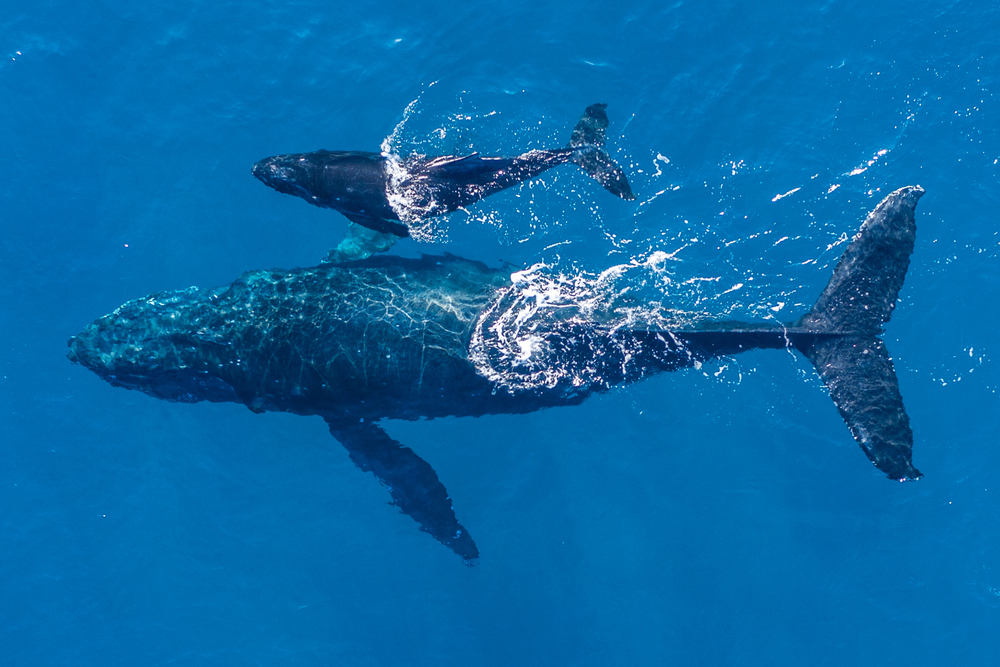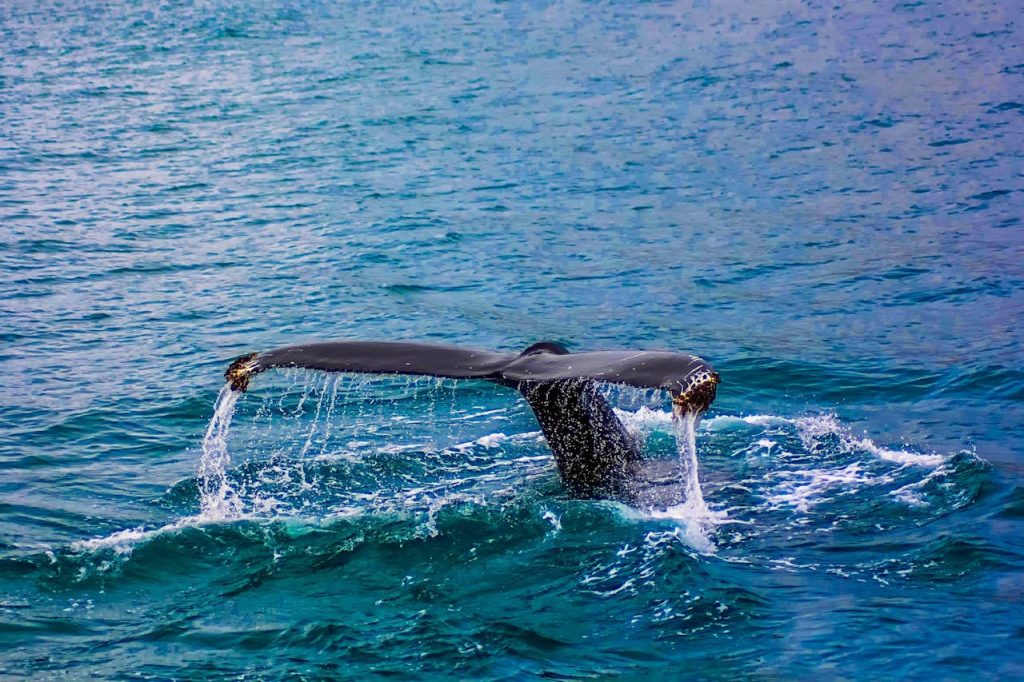Your cart is currently empty!
When the Sea Goes Quiet: The Mysterious Decline of Blue Whale Voices

Across the vastness of our oceans, the hauntingly beautiful songs of blue whales have always carried for miles, serving as a symbol of life, connection, and the mystery of the deep. But today, scientists are noticing something profoundly unsettling. The once thunderous melodies of these marine giants are fading. According to researchers cited by National Geographic, blue whale songs have dropped by as much as 40 percent in the past two decades. That is not just a small dip in volume; it is an eerie silence creeping into our planet’s largest ecosystem.
For generations, whale songs have fascinated scientists and the public alike. Their low frequency calls, often reaching as far as 500 miles underwater, are thought to be a form of long distance communication for finding mates, navigating, and maintaining social bonds. Yet, in recent years, acoustic monitoring has revealed something both heartbreaking and mysterious. Many blue whales are either singing less frequently or at much lower volumes than before.
It might sound like a small detail, a shift in decibels, but in nature, every sound tells a story. The ocean has always been an orchestra, with each creature playing its part. The fading of blue whale songs could be a warning bell, signaling that something in the marine world has gone deeply out of tune.
This transformation in oceanic soundscapes has intrigued marine ecologists who now see whale song decline as part of a broader environmental shift. With each passing year, underwater ecosystems are growing quieter as multiple species alter or abandon long standing communication habits, a potential indicator that marine life everywhere is under stress.

Scientists Unravel a Chilling Discovery
At first, marine biologists believed that the drop in song frequency might simply be an adaptation. Maybe whales were adjusting their pitch to communicate better in increasingly noisy seas filled with shipping traffic, oil exploration, and sonar. But as data mounted, the story became far more complex and deeply concerning.
According to Earth.org, the decrease in whale song is linked to rising ocean temperatures and a phenomenon scientists now call marine heatwaves. The infamous warm water anomaly known as The Blob, which appeared in the Pacific Ocean a decade ago, marked a turning point. During these periods of extreme ocean heating, food chains collapse, krill populations, the whales’ main diet, dwindle, and blue whales struggle to find enough nourishment to sustain themselves.
When whales are hungry, their priorities change. Researchers noticed that during and after major heatwave events, whales spent far more time foraging and far less time singing. The songs, it turns out, are a luxury of stability, a behavior tied to abundance and energy. In leaner times, even the ocean’s largest creatures fall quiet.
New research also suggests that the stress caused by fluctuating ocean conditions may affect whale hormone levels, particularly those linked to reproduction and energy regulation. These biological pressures could further discourage singing behavior, making silence both a physical and emotional reflection of their struggle to survive.
The Connection Between Silence and Survival
The relationship between whale song and survival may go even deeper than scientists first thought. In several long term acoustic studies, scientists found that whales only sang their loudest when they were healthy, well fed, and in optimal breeding condition. That means their songs are not just communication tools, they are indicators of well being, of confidence, and of life thriving beneath the waves.
As climate change accelerates, the ocean has become a harsher, more unpredictable home. Shifting currents, declining oxygen levels, and acidifying waters have made feeding grounds unstable. Blue whales, once roaming in predictable patterns, now travel farther and expend more energy to find food. And just like humans who stop singing when they are tired or stressed, whales too seem to lose their voice when the world around them becomes too difficult to endure.
Scientists are quick to point out that the silence is not permanent yet. The whales are still there, still alive, still resilient. But the quieter oceans are a reminder that even the most powerful voices can be dimmed by an environment under strain. Their fading songs may be their way of telling us that something is wrong long before we can see it on the surface.
It is also possible that these patterns could shift again if ocean ecosystems recover. Experts believe that by restoring food webs and reducing human interference, whale song behavior could bounce back, allowing these magnificent creatures to once again fill the seas with their powerful calls.

Human Noise Is Making It Worse
While climate change plays a major role, another culprit is adding to the silence, human made noise. The modern ocean is no longer a tranquil world. Every day, the sounds of ship engines, oil drilling, and military sonar fill the water with a chaotic hum that can stretch for hundreds of miles. For blue whales, whose calls rely on low frequency channels, this noise pollution is like a constant storm of interference.
Studies have shown that when ship traffic increases, whales immediately change their behavior. They either stop singing, move to quieter areas, or attempt to sing at even lower frequencies, often unsuccessfully. The once peaceful ocean soundscape is now more like a crowded highway, where the voices of its oldest inhabitants are drowned out by human activity.
The irony is that blue whales evolved to sing in frequencies designed to travel far in the ocean. Their songs were perfectly tuned for a silent world that no longer exists. And unlike us, they cannot simply raise their voices or invent new ways to communicate. Their silence is not a choice, it is a response to survival.
Some conservationists now advocate for stricter regulations on ocean noise, including ship speed limits, quieter engine technologies, and controlled sonar zones. If widely implemented, these measures could create spaces where whales can sing freely again without fear of being drowned out by human sounds.

The Ripple Effect Across the Ocean
When one species changes its behavior, the effects ripple across the ecosystem. The decline in whale song may not only impact reproduction rates but could also disrupt the complex balance of marine life. Blue whales play a vital role in nutrient cycling, their movements and waste distribute nutrients that support plankton growth, which in turn feeds the entire ocean food web.
If whales sing less, they may breed less. If they breed less, populations could decline further, leading to cascading consequences for other species. The ocean is a tightly woven network of life, and even the smallest shifts can echo for decades. The quieting of the blue whale is not just about one species losing its voice, it is about an entire world slowly losing its rhythm.
And perhaps most sobering of all, scientists warn that the silence we hear today could become the new normal. Future generations may never experience the full power of the ocean’s chorus, a sound that has echoed since before humans ever walked the Earth.
Marine ecologists caution that restoring whale populations is about more than saving a single species. It is about preserving the natural harmony of the oceans that sustain all life, including our own. When whales thrive, the entire marine ecosystem flourishes with them.
What Can Be Done to Bring Back the Music of the Sea
The situation may be grim, but it is not hopeless. Experts say there are clear steps we can take to help restore harmony to the oceans. Reducing greenhouse gas emissions is key, slowing climate change will help stabilize marine temperatures and food sources. Implementing quieter shipping technologies, rerouting traffic away from whale migration zones, and establishing marine protected areas can also give whales the space they need to recover.
There is also growing advocacy for the creation of ocean quiet zones, where human activity is strictly limited to allow marine life to communicate freely. Such zones have already shown promise in smaller regions, with noticeable increases in whale song activity after noise levels drop.
But the most powerful change may come from awareness. The more we understand about how our actions affect creatures like the blue whale, the more we can adapt our behavior. The ocean is not just a distant place but part of the living system that sustains us all. And every song we save helps protect the story of life itself.
On a personal level, individuals can also contribute by supporting sustainable seafood, reducing plastic waste, and advocating for marine conservation policies. Every mindful decision on land has a ripple effect in the sea, giving these whales a fighting chance to reclaim their voice.

Listening Before It Is Too Late
There is a haunting irony in the idea that we may one day look out over the ocean and hear nothing at all. For centuries, sailors, scientists, and dreamers alike have been moved by the songs of whales, deep, soulful, and timeless. To imagine those voices fading into silence is to lose a piece of the planet’s poetry.
Perhaps this is nature’s way of urging us to listen more carefully, not just to the sounds that remain but to the silences between them. Every quiet moment beneath the waves holds meaning, a message waiting to be understood. The blue whales are not gone, they are calling to us in the only way they know how, through their dwindling song.
The question is whether we will answer before the last note fades.
In the end, saving the whales’ voices is about more than conservation, it is about reconnecting with the soul of the planet. When the oceans sing again, it will mean that balance has been restored, and that humanity has finally learned to live in harmony with the world it depends on.
